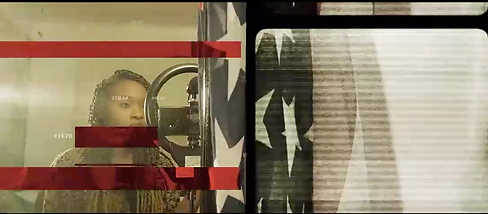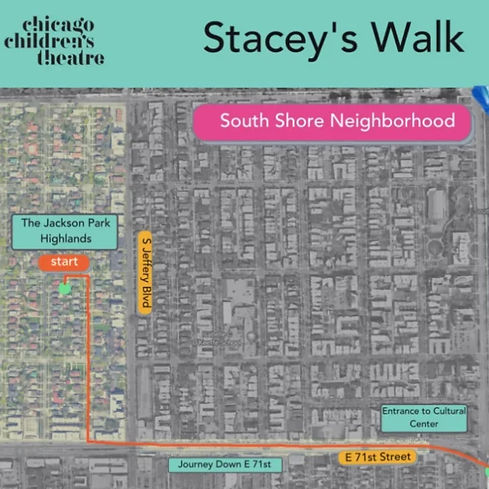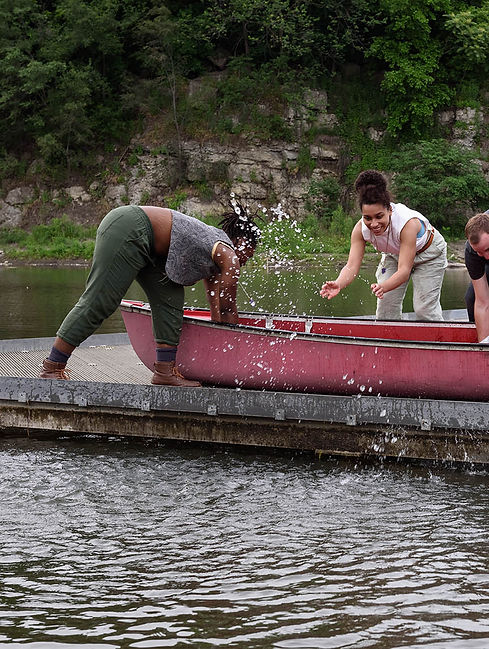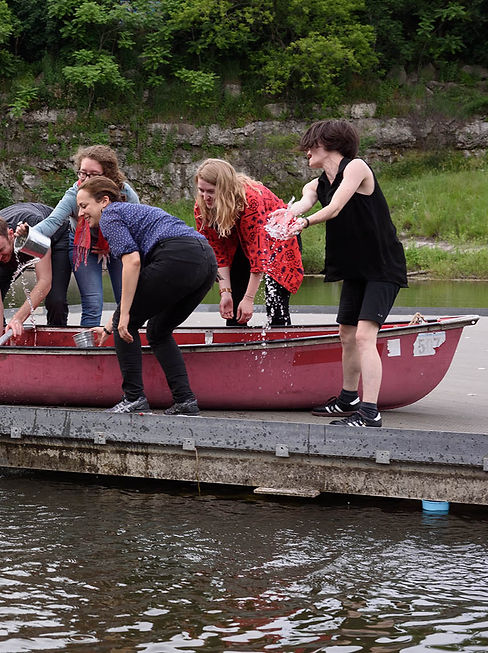PRESS
South Side Weekly on Re-Writing the Declaration
"Complete with makeshift props such as colonial wigs, and a brief impression of now-outgoing President Donald Trump, Re-Writing the Declaration doesn’t take long to give the audience what they did not know they came for but definitely needed: a belly laugh. Barrett uses comic relief to address the apparent ignorance of those who have used their race as currency, because of privilege, both past and present. The satire is just the right concoction for today’s times of stress, leaving enough room for viewers to grasp the truth." -Danyella Wilder, South Side Weekly



Stacey's Walk
"While she’s walking, Stacey muses with often hilariously accurate teenage perspective on the sights and the neighborhood history she’s been taught—or not taught. Upon seeing Jesse Jackson’s old stomping grounds: “He was a Black man who ran for the presidency. Probably like a hundred years ago.” And then: “That’s pretty neat. They don’t teach us in school about all the Black people that wanted to be president before Obama.” It won’t be the last time Barrett‘s writing pivots with ruthless grace from wry humor to blunt assessment of real-life ongoing travesties."
-Catey Sullivan, Chicago Reader
' “I work with a lot of young people, 15, 16,17-year-olds who are leading a lot of movement work,” Barrett said. I wanted to highlight and show that aspect, a little. I think lots of young people might have questions about how do we engage? And what does this mean? And I definitely wanted to take the opportunity to explore that from a young perspective. For me, it felt important to…think about what is their relationship to the movement and the uprisings in this moment?” '
-Quenna Barrett as interviewed by Darcell Rockett, Chicago Tribune

"Sometimes art can play a role in cultural shifts that lead to legislative gains that previously seemed unattainable. Take, for example, “This Boat Called My Body,” created and performed by For Youth Inquiry (FYI)...lthough moving hearts and minds is a goal of FYI’s performances, they also design their plays to provoke action, not just emotional or intellectual reactions. Their plays always involve participation that is aimed at building the skills of the audience so that they learn and practice tools to take action in the real world, such as googling Illinois abortion law and discussing Jane’s parental options. We also see metaphorical actions like helping Jane put her boat in the water and wishing her well as she rows off to her abortion and her future."




